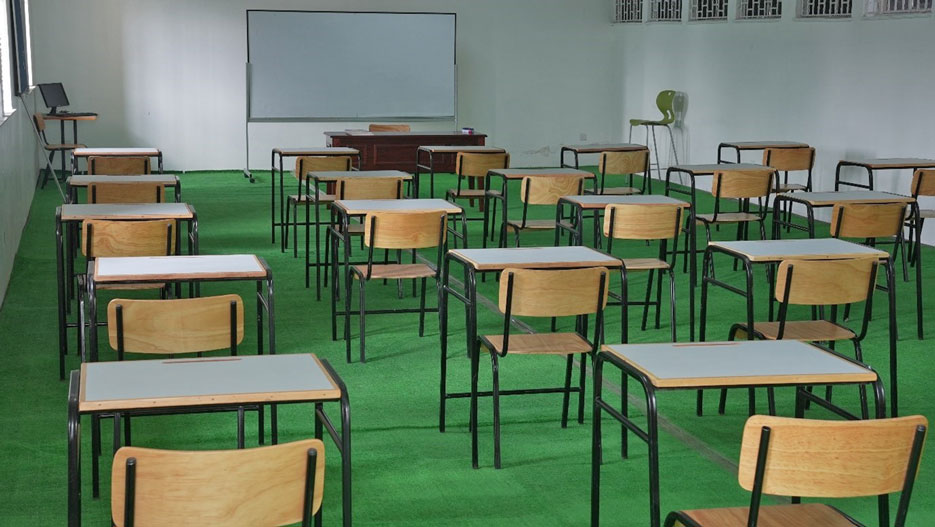Starting a secondary school in Nigeria requires more than just a vision—it demands adherence to specific guidelines to ensure quality education. Securing Secondary School Establishment Approval is not only a legal obligation but a critical step in raising education standards across Africa. Let’s break down the process and requirements to make it clear and actionable for aspiring school founders.
Why Secondary School Approval Matters for Quality Education
Without proper approval, schools operate illegally, compromising the quality of education in Nigeria and beyond. With its vast population and influence in Africa, Nigeria serves as a benchmark for educational reforms on the continent. By ensuring all schools meet approval standards, we can:
- Combat examination malpractice.
- Enhance monitoring of teaching and learning.
- Motivate teachers with timely salaries and promotions.
- Equip schools with adequate infrastructure and learning tools.
- Foster a safe and secure learning environment.
- Recruit qualified educators to drive innovation in teaching.
In essence, obtaining secondary school establishment approval ensures that schools deliver top-notch education and contribute to societal development.
READ: School Attendance Tracker: Mastering Weekly Attendance Calculation Plus Top 7 Strategies for Accurate School Attendance Tracker
How to Address Illegal Schools in Nigeria
Illegal schools remain a significant challenge, undermining education quality. While poverty and ignorance fuel their existence, the following steps can help curb their spread:
- Public Enlightenment Campaigns: Governments should educate communities on the dangers of patronizing unapproved schools.
- Community Participation: Village heads should refrain from leasing land or property to unapproved schools.
- Parental Responsibility: Parents must prioritize enrolling their children in accredited schools.
- Government Support: Provide loans and grants to private schools to encourage compliance.
- Task Forces: Establish robust monitoring teams to identify and shut down illegal schools.
By tackling illegal schools, Nigeria can safeguard the future of its education system.
9 Key Requirements for Secondary School Approval in Nigeria
Meeting these compulsory requirements set by the Ministry of Education ensures your school is ready to operate legally:
- Permanent Site: Secure at least four plots of land dedicated to the school.
- Surveyed Property: Ensure the property is officially surveyed under the school’s name.
- Classroom Blocks: Construct at least six standard classrooms and administrative offices.
- Recreational Facilities: Include sports amenities like a football field and basketball court.
- Perimeter Fencing: Provide security with a fenced school compound.
- Functional Laboratories: Equip laboratories for Home Economics, Basic Science, and Technology.
- Qualified Administrator: Employ a certified education professional as the school administrator.
- Staffing: Hire a minimum of eight qualified teachers and administrative staff.
- Academic Structure: Start with Junior Secondary School (JSS1–JSS2) and Senior Secondary School (SS1).
By fulfilling these requirements, your school will meet national standards and ensure proper accreditation.
CHECK OUT: How to Make Money from Home — A Beginner’s Guide to Freelance Opportunities
Steps to Secure Secondary School Establishment Approval
Ready to get your school approved? Here’s how:
- Prepare Your School: Fulfill all the requirements mentioned above.
- Obtain the Application Form: Visit the Ministry of Education to purchase your establishment application form. Fees are affordable.
- Submit Your Documents: Provide essential documents, including the survey plan bearing your school’s name.
- Schedule an Inspection: Work with the inspectorate team for site visits. Address any recommendations they provide.
- Pay Renewal Fees: Ensure all necessary fees are up to date.
- Follow Up: Stay proactive in monitoring your file to avoid unnecessary delays.
Once approved, your school will gain recognition and eligibility for participation in national examinations like WAEC and NECO.
Approval Stages: What You Need to Know
There are two main stages in the approval process for secondary schools:
- Establishment Approval: Granted before the school begins operations.
- Accreditation: Issued after the first year of operation for conducting external examinations like JSCE and SSCE.
Accreditation involves external bodies such as WAEC and NECO, in collaboration with the Ministry of Education.
READ: Weekly Attendance Percentage: 22 Proven Strategies Every Teacher Must Know to Simplify Per Student Tracking and Boost Classroom Engagement
Final Thoughts: Building a Legacy of Education Excellence
Securing approval for your secondary school is not just about legality; it’s about contributing to the future of education in Nigeria and Africa. By adhering to the standards set by the Ministry of Education, you ensure your school plays a vital role in shaping young minds for a brighter tomorrow.
Stay committed, follow the process, and watch your dream of establishing a world-class secondary school come to life!
Frequently Asked Questions (FAQs) About Secondary School Establishment Approval
Here are some frequently asked questions (FAQs) on the subject of Secondary School Establishment Approval in Nigeria, complete with an outbound link:
-
What is Secondary School Establishment Approval?
Secondary School Establishment Approval is the official permission granted by the Ministry of Education to establish and operate a secondary school. It ensures the school meets all legal, infrastructural, and academic standards required to deliver quality education.
-
Why is Secondary School Establishment Approval important?
Approval is essential to ensure schools comply with government regulations, maintain quality education standards, and operate legally. It also helps to curb the spread of illegal schools and enhance the credibility of the education sector.
-
What are the basic requirements for obtaining secondary school approval?
The main requirements include securing a permanent site, building at least six standard classrooms, providing recreational facilities, hiring qualified teachers, ensuring security, and equipping functional laboratories.
-
How long does the approval process take?
The duration depends on how quickly the applicant meets the Ministry of Education’s requirements. Prompt submission of documents and addressing any recommendations can significantly reduce delays.
-
Can a secondary school start without establishment approval?
No. Operating a secondary school without official approval is illegal and poses risks to the education system. Such schools may face closure by government authorities.
-
What is the difference between establishment approval and accreditation?
- Establishment Approval: Granted before the school begins operations.
- Accreditation: Issued after the first year of operation to allow participation in external examinations like WAEC and NECO.
-
Are there specific fees involved in the Secondary School Establishment Approval process?
Yes, applicants must pay for the establishment application form and annual renewal fees. The exact fees vary by state.
-
How can I ensure my school meets accreditation requirements for WAEC and NECO?
To qualify for accreditation, ensure your school complies with Ministry of Education guidelines and provides adequate facilities and qualified staff. Collaboration with external examination bodies like WAEC and NECO is also required.
-
How can illegal schools be stopped in Nigeria?
Illegal schools can be addressed through public awareness campaigns, community involvement, government funding for private schools, and the establishment of monitoring task forces.
-
Where can I get more information about school approval processes in Nigeria?
For detailed information, visit the Federal Ministry of Education’s website.
SEE ALSO: Adventure Travel for Thrill Seekers — Exploring the World’s Most Extreme Expeditions
By addressing these common questions and providing an outbound link, the content becomes more helpful and aligned with SEO best practices. Let me know if you’d like additional FAQs or adjustments!
Summary On Comprehensive Guide to Secondary School Establishment Approval in Nigeria
Securing Secondary School Establishment Approval is a critical step to delivering high-quality education and curbing illegal schools in Nigeria, the leading nation in African education reform. This article provides an unmatched step-by-step guide to navigating the approval process, highlighting unique details that make it stand out from others.
Why Secondary School Approval is Crucial
Without proper Ministry of Education approval, schools risk compromising educational standards. Approved schools enjoy:
- Enhanced monitoring to reduce examination malpractice.
- Consistent teacher training for effective curriculum delivery.
- Better infrastructure, security, and teacher motivation through timely salaries and promotions.
Key takeaway: Approval ensures legal compliance, improved teaching standards, and innovation in education.
READ: Solo Adventure Travel Experiences — Discover the Hidden Benefits of Traveling Alone
9 Essential Requirements for Secondary School Establishment Approval
- Permanent Site: Minimum of 4 plots of land surveyed under the school’s name.
- Infrastructure: At least six standard classrooms, admin offices, and a secure perimeter fence.
- Recreational Facilities: Sports amenities like a football field and basketball court.
- Functional Laboratories: Fully equipped science, home economics, and agricultural labs.
- Qualified Staff: Minimum of 8 certified teachers and a professional administrator.
- Security Measures: Adequate measures to safeguard students and staff.
- Compliance with Academic Structure: Must start with JSS1–SS1 classes.
- Inspection Readiness: Ensure facilities meet Ministry standards before the inspection date.
- Government Collaboration: Stay proactive in aligning with policies and guidelines.
How to Avoid Pitfalls: Learn from Others’ Mistakes
Unlike other articles that provide vague steps, this guide emphasizes actionable details to ensure approval. Common oversights by other school founders include:
- Ignoring proper inspection preparation.
- Submitting incomplete documents (e.g., missing survey plans).
- Underestimating the importance of staff qualifications.
This guide addresses these gaps by offering real solutions and practical advice.
READ: Frugal Living Tips for a Sustainable and Debt-Free Life
How to Curb Illegal Schools in Nigeria
Illegal schools thrive due to poverty and lack of awareness, but here’s how to stop them:
- Launch public enlightenment campaigns to inform communities.
- Prevent community leaders from leasing property to illegal operators.
- Encourage parents to prioritize approved schools for their children.
- Offer government grants and loans to support compliant private schools.
- Establish monitoring task forces to identify and shut down unapproved schools.
Approval and Accreditation Stages For Secondary School Establishment Approval
- Establishment Approval: Granted before school operations begin.
- Accreditation: Issued after one year of operation to qualify for external exams like WAEC and NECO.
Unique Features of Secondary School Establishment Approval Guide
Unlike others, this guide stands out by:
- Providing specific, actionable steps for approval.
- Highlighting how to prepare for inspection visits and avoid delays.
- Addressing both establishment and accreditation requirements in one place.
- Offering solutions to combat illegal schools, which many articles overlook.
- Including links to government resources like the Federal Ministry of Education for direct access to official information.
CHECK OUT: Hidden Adventure Travel Spots — Discover Secret and Remote Destinations
Conclusion: Setting a New Standard in Nigerian Education
Secondary School Establishment Approval in Nigeria goes beyond fulfilling requirements—it’s about delivering impactful, quality education. This guide ensures you not only meet approval standards but also contribute to the development of a robust and legal education system in Nigeria.
Ready to start? Follow this guide and set your school on the path to success!
For more insights, visit the Federal Ministry of Education’s website. Have questions? Let’s connect on Facebook for updates or drop your comments below—we’re here to help! Let’s create a brighter future together!





